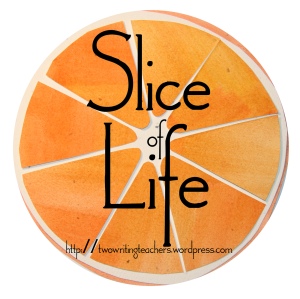
(This is part of the Slice of Life Challenge with Two Writing Teachers. We write about small moments each and every day for March. You come, too. Write with us.)
As we finish up our critical reading of Three Cups of Tea, I led my sixth graders through a discussion of the United Nation’s document, The Universal Declaration of Rights of Children, yesterday (We used a child-friendly version). This UN declaration is referenced in the book and was also mentioned as we spent a day last week learning about Malala and her story of one girl seeking to change the world through advocating for education of girls.

Of course, before we could discuss the document, we had to discuss the United Nations. Most students were only vaguely aware of the name and only a handful in my four classes had any sense at all what the UN was and what it does in the world (or even that it is located in New York City). The declaration for children, while very general in nature, gave them an insight into their own lives, and how lucky they are to in a safe and supportive place in the world. Reflecting on why such a document would even need to be created and ratified by world leaders is an eye-opener in itself. And questions about who enforces the rights of children? Another lesson on the real world politics of the global stage.
As part of a writing assignment, they had to choose one of the articles of the declaration and write briefly about the importance of that article. Here are a few examples:
I thought Article Seven is most important to children because it talks about education and earning to be responsible and useful. Children will have to know this if they wish to be successful later in life. Also, the article states that children can play and have an equal chance to develop themselves. I think that is important. — Emily
I think Article Four (protection) is important because if we didn’t have any of those rights, then America wouldn’t be like it is today. Most children probably wouldn’t receive protection, special care, good food, and medical services. If none of this was available, then children’s lives would be in a worse way, not getting any of the proper essentials to survive. That’s why I think Article Four is the most important one. – Jackson
I think Article Six – “You have the right to love and understanding …” is the most important one because without love, I feel life would be awful. It’s like having a parent take care of you because they have to and not out of love and understanding. If people don’t understand you, then you feel alone, like you’re the only one in the world who feels they are going through the tough time or problem. Even if you’re rich, if you have no love, you have nothing. I feel wealth comes from the heart and not the ATM. – Jacob
I think that the right of a child that is most important is that “you have a right to a name and to be a member of a country.” I think this is important because a name is essential so that you can be called something other than “child,” “girl,” or “boy.” The right to be a member of a country is important too, because if you don’t have that right, you’d typically be homeless and you might not be welcomed anywhere in the world. – Victoria
Empathy begins with understanding, and action in the world begins with young people understanding the world through the experiences of others. Yes, this UN document probably has no teeth — children still get lost from the view of the world leaders. My sixth graders at least had a chance to appreciate not just the hardships endured by other children in the world, but also the promise of good lives.
Peace (in the peace),
Kevin
🙂 They have been introduced to the UN in a human way as well. 🙂
You made your students think. You opened another way for them to look at the world. They responded by thinking and exploring.
I love this! My favorite line is, “Empathy begins with understanding, and action in the world begins with young people understanding the world through the experiences of others.” So true! So powerful! Job well done!!
Thanks for sharing. My high school students, all the way up to 12th grade, didn’t know about the UN or the Universal Declaration of Human Rights (UDHR). We were focusing on global issues, human rights, why those matter, etc. It was an eye opener for my students that the UDHR and the UN exist. They asked thoughtful questions, too, including: Why are humans still mistreated (including by their governments) if the UDHR exist? We need more of these dialogues with students at all grade levels.
Like Michelle, my favorite line is “Empathy begins with understanding, and action in the world begins with young people understanding the world through the experiences of others.” Your students’ writing shows that they get that!
Wow. I love the student writing and reflections. I am reading A Long Walk to Water with my 5th graders. Did you create kid friendly version of this and do you think this would be too much of a stretch for them? Just wondering…. Thanks so much. Always love reading your blog.
This is amazing stuff. I’m wondering as we study some continents in May, what kind of a conversation we could have in first grade. (Clearly, some time to process what would be discussed in a age appropriate manner.) Thanks for making Me think!
I love when students are challenged to think and discuss things. It was wonderful to see how your students responded.